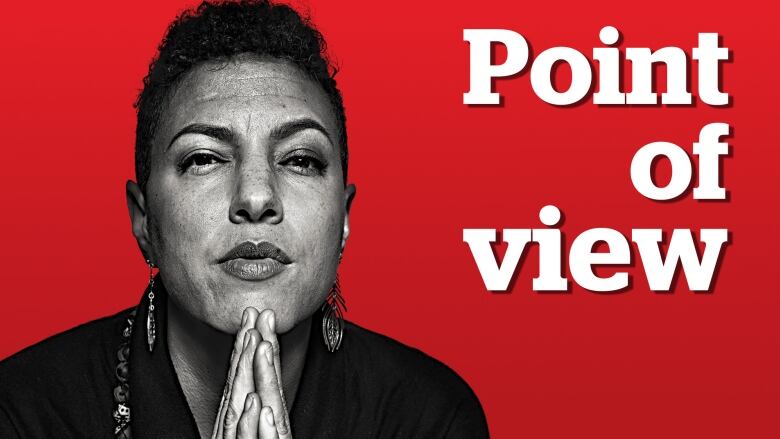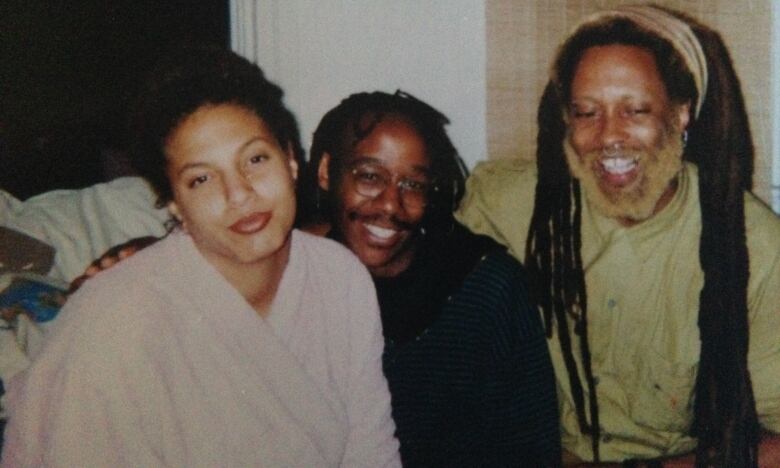The need for mentorship as a woman of colour
Rachel Zellars writes a tribute to three people who have helped her survive the world as a woman of colour

As part of our series Real Talk on Race, CBC Montreal asked 10 people to share their personal stories about race. These stories are in their own words. Share yours with uson Facebook, Twitterand webquebec@cbc.ca.
I immigrated to this city 11 years ago and put my law career on hold, naively, to support my partner's dreams. When he fell ill, I became like so many other women from somewhere else suddenly tethered to a home, a partnerand children that I needed to support.
My life has been made possible through lifelong mentorships with folks who have allowed me to walk in their pathways of experience and know-how. I have been, equally, loved and guided in this world.
As a close friend recently reminded me, "We are our own best resource," and our survivalin this city depends on the unconditional love, kindnessand guidance we give to one another.

'My survival is tied to those who have already done the work'
It was a tremendously difficult time when I began.My successes and my ability to navigate academia sanely and clearly, have hinged upon the guidance of the women who have held me in that space.
Lena Palacios, who began at McGill two years ahead of me, spoke candidly in the first few moments of our first meeting about the things, and people, I needed to avoid at the university.
Under her protection, she taught me a lesson I carry forward now: We must, as women of colour in this city, help each other survive. We simply owe it to one another.
My advisor, Charmaine Nelson, has also done the same.
We must, as women of colour in this city, help each other survive.We simply owe itto one another.
She is a brilliant, truthful "cartographer" ofMcGill for me, a hands-on advisor who also makes time for me outside of the university.
Once, I was writing a chapter for her book, and we were in the final editing stages facing a tight deadline.I would send her a draft at 2 a.m.; she would send it back by 2:30 a.m. with comments and brilliant footnotes.We bantered like this for two weeks or so, often at obscene hours.
She taught me so much about rigor and love in those few weeks of editing, and she reminded me of the necessity to do what you love.
- P.O.V.VIDEO:Hussein Al Hilli on the acceptance he's found in Montreal
- Read all the P.O.V. stories in the series
That survival the highest kind is deeply tied to joy. Academia costs too much for Black women, and love of our labor, our scholarship, our research is one means of survival within the university.

Recently, my oldest mentor died.Ibrahim was a man who saw perfection in me at 19, a time when I thought the violence of my past made me less of a human being less loveable, survivableand grievable than those who grew up in different kinds of homes.
He taught me my most important life lesson to date: That all of thebroken and splintered bits inside me, make me an infinitely whole human being. This lesson has saved my life more than once.

- Share your thoughts on this story on the CBC MontrealFacebookpage
- Read all of the Point of View pieces in the Real Talk on Race series
RachelZellars is a mother, attorneyand PhD candidate at McGill, where she researches Black Canadian history and teaches courses focused on criticalrace theory and Black women's activism in North America.She is a co-founder of the Third Eye Collective, the first organization in Montreal to support Black women who have experienced gendered violence.












_(720p).jpg)


 OFFICIAL HD MUSIC VIDEO.jpg)
.jpg)



























































































